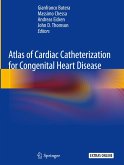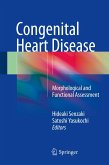Cardiovascular diseases represent the first cause of mortality in the world and in Tunisia and coronary artery disease is the first etiology. Its diagnosis is based on coronary angiography, a key examination that allows a positive and topographic diagnosis and to specify the therapeutic course of action. However, this examination based on the injection of contrast product via an arterial access exposes to complications, and thus requires several precautions and conditions of monitoring and follow-up. The objective of this work is to evaluate the practice of preparation and monitoring of patients undergoing arterial cardiac catheterization (scheduled coronary angiography and/or transcutaneous coronary angioplasty) in a Tunisian cardiology department in order to assess our practice to the recommendations of good practice.
Bitte wählen Sie Ihr Anliegen aus.
Rechnungen
Retourenschein anfordern
Bestellstatus
Storno








